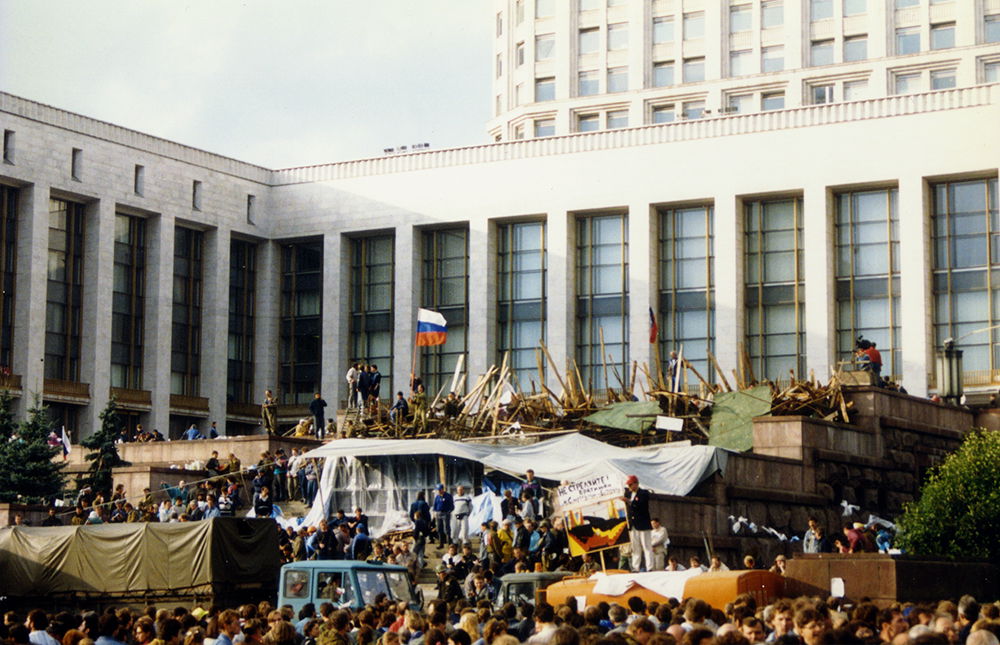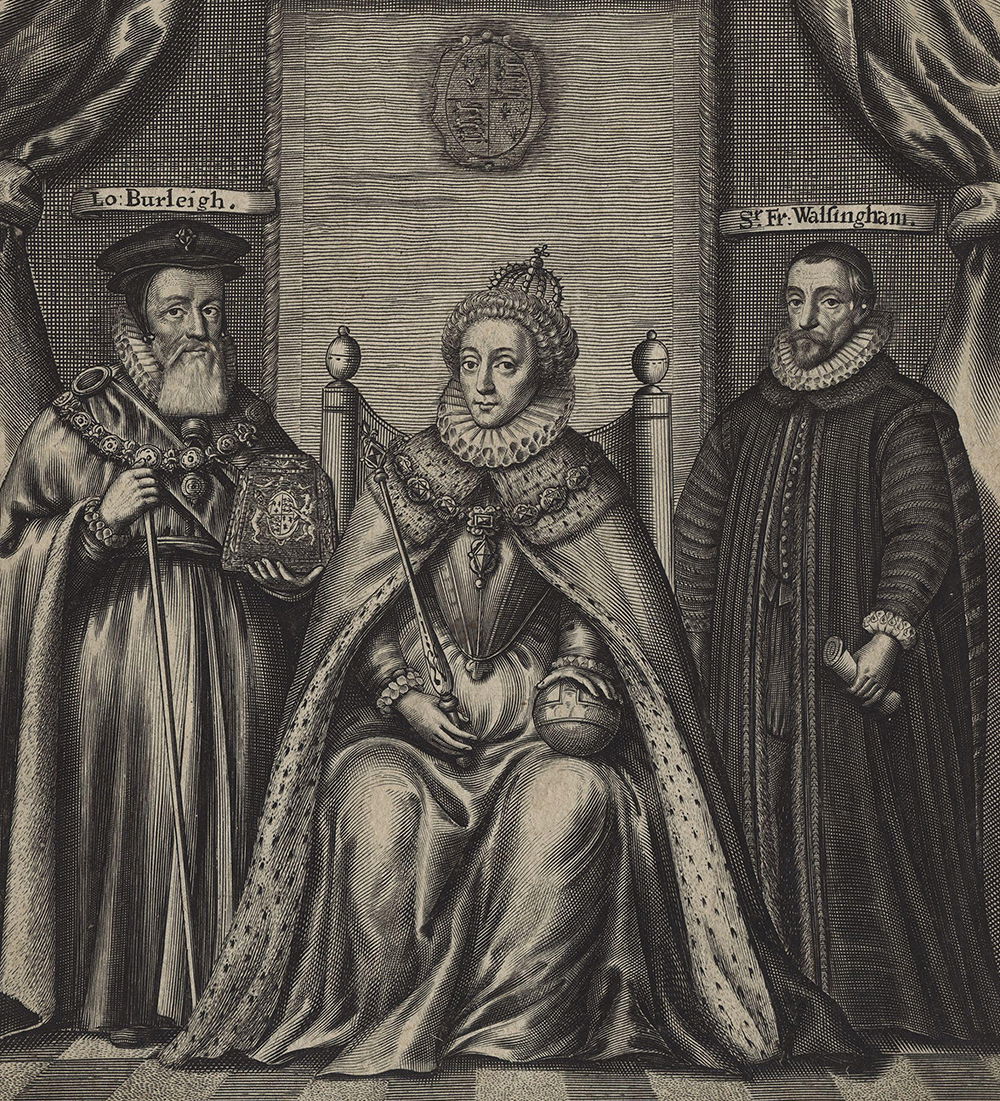Is History Written by the Winners? - 8 minutes read

‘The powerful of one era are not the same as those of the preceding one’
Levi Roach, Associate Professor of Medieval History at the University of Exeter and author of Empires of the Normans: Makers of Europe, Conquerors of Asia (John Murray, 2022).
There is an element of truth to the old adage that history is written by the winners. Whether we like it or not, we view the past from a modern standpoint, privileging (consciously or otherwise) the interests and ideals of the world we know. As a result, we tend to treat developments towards modernity as natural – and disparage the apparent dead ends that stood in its path. Yet this is not the only sense in which history is written by the winners. It is the institutions that helped forge modernity that have overseen the preservation of earlier records. The collections of the British Library and National Archives tell us at least as much about modern Britain as they do about its medieval and early modern past; the same is true of their counterparts elsewhere in Europe. And these trends are themselves nothing new. Already in the ancient and medieval worlds, it was the great religious and governmental libraries and archives that conditioned the preservation of knowledge. We know much more about medieval inquisitors than the heretics they confronted, more about state officials than their subjects.
Yet as with most aphorisms, that history is written by the winners is only true in a quite restricted sense. As history progresses, political, social and economic circumstances change. The powerful of one era are not the same as those of the preceding one, even when they are their lineal descendants. And factors beyond raw political power condition the survival of records. Particularly important in the period I study, the Middle Ages, is the literacy that enables records to be created in the first place. Before the introduction of the written word, we are largely dependent on the views of outsiders, whether they be the ‘winners’ or not. Thus it is the victims of the Vikings who report their attacks, not the piratical protagonists themselves. The same is true of the great Slavic uprising of 983, which saw three bishoprics sacked in what is now eastern Germany. We hear of this almost exclusively from the German victims, not the pagan victors. As ever, history is about more than simple binaries.
‘Properly done, history will reveal manipulation at work’
Lucy Wooding, Langford Fellow and Tutor in History at Lincoln College, Oxford and author of Tudor England: A History (Yale, 2022).
Some history does seem to have been written by the winners. In the history of England’s Reformation, since we became a Protestant nation defined in contrast to Catholic enemies overseas, the narrative was for centuries heavily tinged with Protestant triumphalism. The pre-Reformation Church was described in terms of superstition and oppression, Protestant ideas were characterised as libertarian and enlightened, and, later, Catholics were associated with assassination plots and the Spanish Armada. Only in the latter decades of the 20th century, when attitudes to religious identity were recalibrated, did this narrative become open to question. A different historical interpretation was then able to emerge, suggesting that the pre-Reformation Church in fact had many strengths, and that Protestantism, advanced by a literate elite, had shattered many of the cherished notions of traditional religious culture.
There is a problem, however, with thinking about ‘winners’ in history. Who exactly do we mean? In Tudor England, should we identify the ‘winners’ within the political elite, the nobility, the intelligentsia? Looking closer at the political establishment, it is clear that the views of Elizabeth I were frequently at odds with those of her chief ministers. Within the social elite, we can see that the estates of Catholic nobles bordered those of their Puritan critics. In the intellectual world, no two writers, or poets, or playwrights, or political theorists could agree. The notion of any one group emerging as the ‘winners’ is deeply misleading, obscuring the diversity and multiplicity of people and ideas in any given era.
History can be a means of winning when it is put to political use. In every age, just as today, insecure politicians manipulate the past for their own purposes. But this is not history written by the winners, so much as history hijacked by those trying to win.
At the same time, though, history contains its own inbuilt remedy to this. Properly done, history will reveal the manipulation at work. It does not describe the past, it debates it. So if history can be manipulated by the unscrupulous, it can also challenge those who are desperate for victory rather than truth.

‘Are we even sure who the winners are?’
Philipp Ther, author of How the West Lost the Peace: The Great Transformation Since the Cold War (Polity, 2023).
The history of Europe’s post-communist transition after 1989 was obviously written by the winners of the Cold War. In fact, so complete was the victory that Francis Fukuyama famously proclaimed that there would soon be nothing more to write about. It was, he said, the ‘end of history’, with the world developing into free market economies and liberal democracies.
Perhaps we should really be asking what we mean by ‘winners’. Can we be sure who they are? And how soon do we call their victory? Fukuyama was right about the rise of global capitalism, but forgot that it can thrive in authoritarian regimes as well.
Today it is easy to criticise him. Most social scientists dealing with the post-communist era followed his assumptions by studying the consolidation of democracies, privatisation and other pro-market reforms. They largely ignored decreases in voter participation and other early signals for a crisis in democracy. Other side effects of neoliberal reforms such as rising regional and social inequality were also hardly noticed.
History written by the winners implies that there must be losers. In the post-1989 era, this Manichean interpretation of history entailed a condemnation of communism (which I personally share) that was out of line with the mixed experiences of those who had lived under it. While (in the West, at least) communism was thrown in the dustbin of history, Cold War anti-communism lived on, as did the old subdivision of Europe into West and East. This worked fairly well until the global financial crisis in 2008. Since then the neoliberal hegemony has been broken, first because the demonised state had to fix the global financial crisis, and then, politically, in the annus horribilis of 2016, which brought a radical swing towards anti-liberal right wing populism and nationalism. In this context we might ask: did the so-called winners of the Cold War even win? No victory is permanent, so no history is, either. It is certainly possible to suggest that Western hubris –thinking of itself as the victor – was one of the reasons why the so-called winners of the Cold War have lost the peace in the period after 1989.
‘Nowadays, history is largely written by historians’
Bridget Heal, Professor of Early Modern History at the University of St Andrews.
A recent comment in the Guardian quipped that ‘if you’d met any professional historians and looked at their clothes, cars, and houses, you’d soon stop claiming that history is written by “the winners”’. Colleagues on Twitter remarked that they had never felt so seen. Joking aside, the professionalisation of the discipline – a process in train since at least the 18th century – means that nowadays history is largely written by historians. In the 21st century that scholarly community is still nowhere near as diverse as it needs to be, but it is at least attuned to the need to analyse the past in its full complexity.
The question of winners and losers is surely of greatest consequence in discussions of the history of slavery and of colonialism. It is key to global history, too, which seeks to challenge conventional narratives of the rise of the nation state. Whose voices do we listen to? Whose experiences and actions do we judge worthy of analysis? These questions have also shaped my own field of early modern European history. Here, since at least the 1970s, scholars have sought to recover the history of marginalised or persecuted individuals and groups, and of those who left few or no written records.
For the early modern period, women’s history, queer history, the history of religious minorities, and the history of refugees and migrants all now have long-established pedigrees. In studying the witch-craze of the 16th and 17th centuries, for example, historians have managed to go beyond the deforming perspective provided by official records to recover the beliefs of those accused, using approaches informed by anthropology and psychology. Even the history of war, long a bastion of top-down historical writing focused on politics, diplomacy and military strategy, has undergone a transformation, with burgeoning interest in the experiences of society at large and of those who suffered most from war’s impact.
So yes, of course history tends to be written by the winners. But luckily there is a dedicated band of highly trained, poorly paid and badly dressed historians out there trying to circumvent that.
Source: History Today Feed
I agree with the view that history is not only written by the winners but also reflects the diversity and multidimensionality of people and opinions in each era. It is important that historians strive time calculator to represent the complexity of the past.
Whether it's fierce and bold or mysterious and cunning, your style name sets the tone for your in-game identity. snaptik So, let your imagination run wild and craft a name that resonates with your gameplay style. Embrace the uniqueness and stand out in the battlegrounds of 'Free Fire'!"
backpack battles is a unique and innovative auto battler game that takes the classic concept of inventory management and turns it into an exciting and strategic competitive experience.